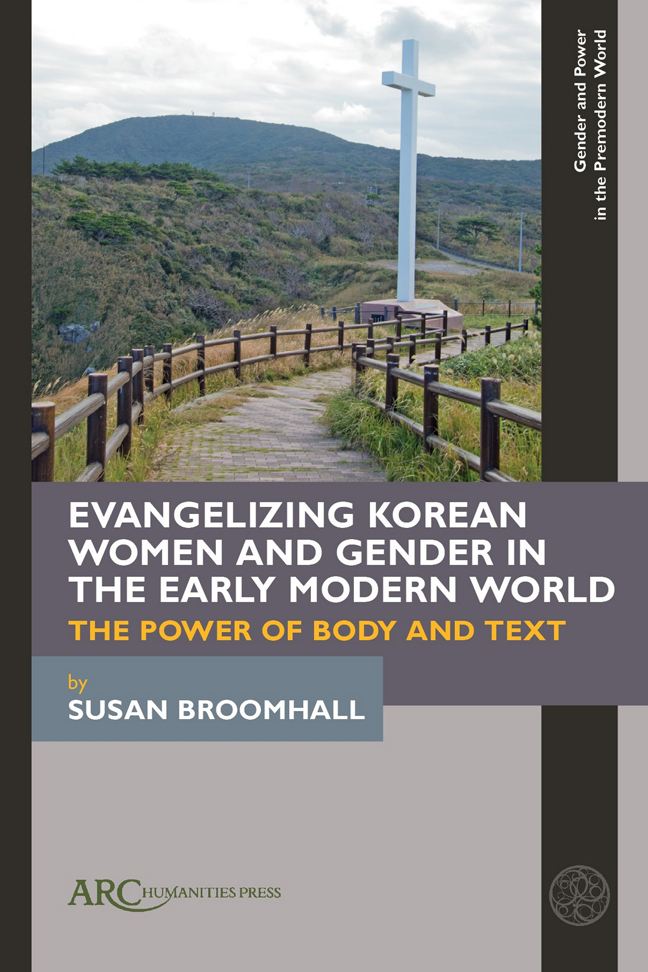3 - Suffering
Published online by Cambridge University Press: 18 February 2024
Summary
THE YEARS THAT had seen Korean women and men discover Christian teachings in Japan were also those during which the position of Christianity had grown increasingly fraught there. By the end of 1614, the Tokugawa leadership had proscribed the Christian faith, issuing a decree to expel missionaries and their local supporters, sending some Christians into hiding in Japan and others to new lands. Significant political changes in the years following, including the death of the military dictator Tokugawa Ieyasu, the abdication of his successor, Hidetada, and the rise to power of Iemitsu, did not alter the trajectory of intensification of state- sanctioned violence against Christians. However, in the Jesuit archive as well as in wider Catholic textual traditions, violence offered new forms of spiritual expression for evangelized Koreans, just as it did for Kirishitans and Society men. Chief among these forms, Christian authors proposed, was the opportunity to participate in the most exclusive of communities, that of the Christian martyrs. Suffering as Christians could be understood as spiritually, and personally, productive. This chapter explores how authors conceptualized the gendered nature of the violence against the Christian community in Japan, an experience that had different contours for Korean- born women and men, and offered distinct meanings for expression of their faith identities and for those who beheld it, as eyewitnesses, authors, and readers.
Korean Women and Psychic Violence
The works of Christian authors attested to a wide range of measures undertaken by Japanese authorities to eradicate the possibility of their faith practices, both at the level of the community and for specific individuals. Destruction of the material culture of Christianity, for example, was described as a source of great communal suffering. Over the course of 1620, the governor of Nagasaki, Hasegawa Gonroku, ordered the destruction of key spiritual sites of the Christian community. Christian churches, including that of the Korean community, Saint Lawrence, were demolished. No services had been performed in these buildings since the edict of 1614, but Mateo de Couros, writing from Nagasaki, identified these sites’ intense affective meaning for the local community, “which just by seeing the faithful of this city were consoled.” Almshouses and leper houses were also disbanded, leaving their former inhabitants to find support in more personalized relationships. Those buried in the three Christian cemeteries of the city were exhumed.
- Type
- Chapter
- Information
- Evangelizing Korean Women and Gender in the Early Modern WorldThe Power of Body and Text, pp. 63 - 84Publisher: Amsterdam University PressPrint publication year: 2023



